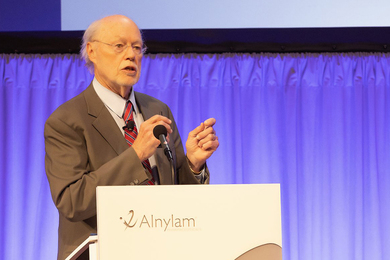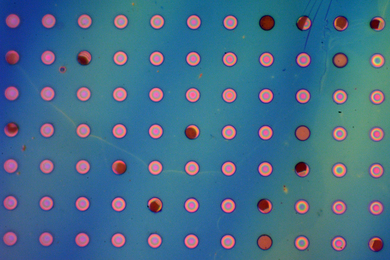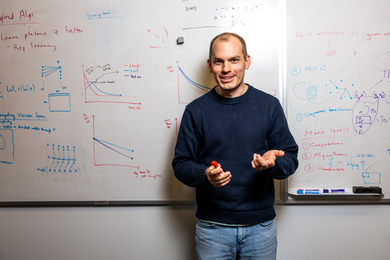A $20 million grant to MIT from the Ludwig Fund, a major philanthropic foundation primarily focused on cancer research, will enable MIT researchers to launch a major attack on the fundamental problem of cancer metastasis, MIT officials announced today.
The gift will establish the new Ludwig Center for Molecular Oncology at MIT, to be administered through the MIT Center for Cancer Research. MIT Professor Robert Weinberg, a noted cancer biologist who led the research team that isolated the first cancer-causing gene and the first known tumor suppressor gene, will head up the center.
"The Ludwig Fund's commitment to support research in metastasis--the most deadly and possibly least understood phase of cancer--is both generous and visionary. And Professor Robert Weinberg, with his history of groundbreaking research in this area, is a superlative choice to head up this effort," said MIT President Susan Hockfield.
Metastasis, the spreading of cells from a primary tumor to distant sites in the body, is responsible for 90 percent of cancer-related deaths. A diagnosis of metastatic spread has been a death sentence for many, because these distant growths, which have puzzled researchers for decades, have been so difficult to treat.
Over the past five years, cancer research at the molecular and cellular level has uncovered many of the mechanisms that enable cancer cells to leave the primary tumor site and seed colonies elsewhere. As a result, metastasis research is moving ahead quickly and shows great promise.
"The Ludwig grant comes to MIT at a particularly auspicious time, because we now have the proper biochemical tools to make rapid inroads in this research area," said Weinberg. "The major questions are now ripe for experimentation, and the Ludwig Center at MIT is poised to move ahead quickly."
The establishment of the Ludwig Center will enable strong synergies between MIT research groups that are addressing the problem of metastasis through different means. "Each research group will bring its own set of experimental tools to a common table," said Weinberg.
The Ludwig Center will be an integral part of the MIT Center for Cancer Research (CCR), founded in 1974 to harness the power of basic science and technology to understand and eliminate cancer.
The CCR is one of eight National Cancer Institute-designated basic research centers in the country and is helping to lay the foundation for a new type of cancer research that taps into a broad range of scientific disciplines and utilizes new tools and technologies.
The Ludwig Center at MIT is one of six new cancer research centers being established concurrently around the country by the Ludwig Fund, created by billionaire Daniel K. Ludwig, who died in 1992. Ludwig considered cancer to be one of humanity's great challenges, and the majority of his wealth was given over to cancer research. In 1971 he established the international Ludwig Institute for Cancer Research, which has expended more than $1.1 billion of its own funds in support of cancer research since its inception.
The foundation's gift of $120 million to these six institutions--MIT, Dana-Farber/Harvard, Johns Hopkins, Memorial Sloan-Kettering, Stanford and the University of Chicago--is believed to be the largest single gift by a foundation to U.S. cancer research efforts.
The Ludwig Center at MIT will ultimately be located within the new Center for Cancer Research facility, a new building being planned for the corner of Ames and Main streets on the MIT campus.
A version of this article appeared in MIT Tech Talk on November 15, 2006 (download PDF).





